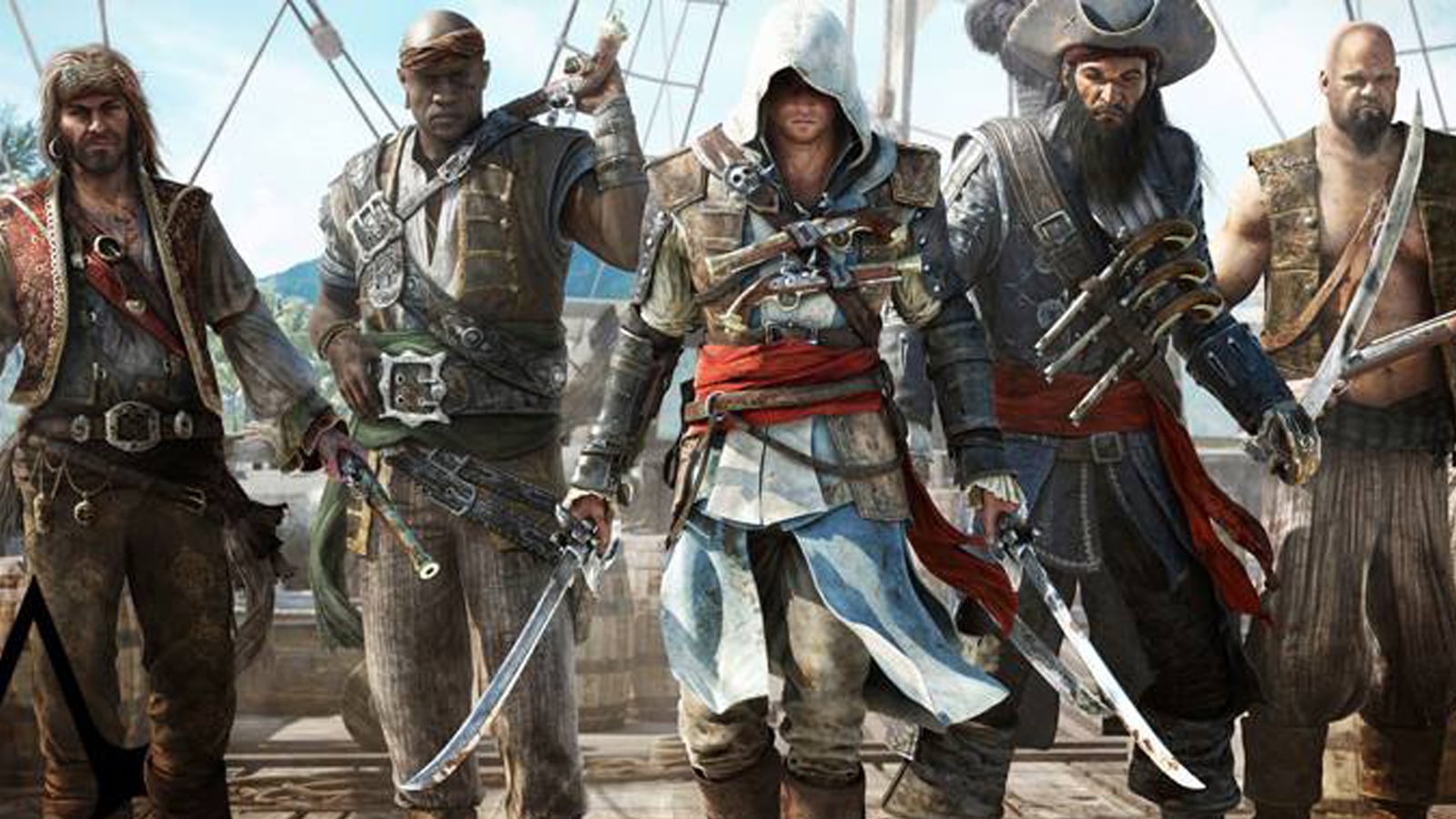The online pass is dying. Last week after the launch of Assassin’s Creed 4: Black Flag, when Ubisoft announced that it was shutting down its uPlay passport system immediately and indefinitely, it was just another slap for a system that has always been criticized by those who actually purchase games (though rarely developers or financial analysts). The idea of an online pass is simple: new copies of games come with a one-time-use code that players input to unlock some aspect of the game experience. In many cases, it would be access to the game’s multiplayer; other times it would be chunks of single-player content that would be otherwise unavailable. Players who went to a GameStop a few weeks later and bought a used copy would have to pay a fee (usually $9.99) to unlock that portion of the game.

The practice goes back to 2009, although the term “online pass” didn’t originate until a year later with the release of EA Sports’ Tiger Woods PGA Tour 11. Gears of War 2 released with an “exclusive” set of multiplayer maps for those who bought the game new, but the maps were later made available to used purchasers for $5. But that’s almost-irrelevant to many players: EA really made the practice it big. The first major instance was with the epic fantasy RPG Dragon Age: Origins. Included in the box was a code for “The Stone Prisoner,” a substantial chunk of downloadable content that would be free for new-game buyers, but $15 for those without the code.
It’s not hard to understand why. Hardly a month goes by without some developer or analyst proclaiming that used game sales will be the death of the industry. Game budgets have gotten enormous, with the top end rivaling film budgets (Grand Theft Auto V cost $265 million to make and market, although a 2010 study said that the average cost of a multiplatform game, marketing excepted, is closer to $18-$28 million with the occasional exorbitant spike). With these costs, games need to sell millions and millions of copies in order to break even (Square Enix’s reboot of Tomb Raider last year, which had a budget closer to $100 million sold 3.4 million copies in its first month but failed to meet expectations) In light of this, the sale of used games, which only gives money the retail outlet rather than the game developer, does seem to be a problem, financially speaking, for the future of the industry.
So perhaps the online pass is not really unwarranted, but it is unprecedented. Used movies don’t require a code to access their special features, nor do any other form of used media. And the sale of used items is hardly new or specific to videogames (although it would be hard to know that from the way game developers talk about its impact). A physical piece of media, once acquired, should be tradable, resaleable, whatever. That person put down money. And another person should have the right to choose to buy a cheaper copy of the game, whether it comes from Gamestop or some random seller on Amazon. The content that is on that disc should be made available to them and not locked under some arbitrary key.
(The same logic is applied to on-disc DLC, where players purchase a miniscule file that simply unlocks content on the disc rather than adds entirely new content to the game. Unlike with the online pass system, nobody gets it for free.)
Unsurprisingly, there has been backlash against the practice. Even back in 2010, Activision CEO Bobby Kotick, said in an interview with Joystiq, “We can do some of these things that EA and others have done. We actually don’t think it’s in the best interest of the gamer, and so we’ve chosen not to,” later saying, “I think you always need to be sensitive to that relationship and not crossing the line to a place where the customer feels like they have been taken advantage of.”
EA clearly crossed a line: For both 2012 and 2013, Electronic Arts won the Consumerist’s Golden Poo award for Worst Company in America, as consumers expressed their resentment against numerous aspects of EA’s business practices. One month after its second win, the company dropped its online pass system and then removed it from past games as well.
When Ubisoft changed its policies last week, it used its company blog to let everyone know why:
“Assassin’s Creed fans, we heard you loud and clear… Uplay Passport will not be a part of any future Ubisoft games… We recognized that Passport is no longer the best approach for ensuring that all our customers have the best possible experience with all facets of our games.”
Score one for gamers. Unfortunately, in the comments of the announcement, Ubisoft communications director Gary Steinman let slip the unfortunate detail that removal of the passport system “won’t be instituted retroactively,” so past games that featured the system will continue to feature it. That being said, the same was initially true about EA’s changeover, so it’s not impossible that the stance will change in the coming weeks.
But the industry is changing rapidly. Digital copies of games, for the most part, are treated differently than physical ones. When a player downloads a game from the Xbox Live Marketplace, PlayStation Network, Nintendo eShop, or wherever, it can’t be resold. Barring pirated copies, every download is a sale that financially benefits the game’s developer/publisher, which is part of why the industry is moving in that direction, but before Microsoft’s Xbox One policy reversal, the company has spoken vaguely about the ability to resell Xbox One games. That might not sound impressive, but it is interesting because, in the system’s original incarnation, the line between digital and a physical copy was blurred, because all games were installed onto the hard drive before playing. But the games could be deactivated and resold at certain sellers…or something. The plan never got off the ground, because after serious backlash from consumers, that entire system changed, and with it went the need to differentiate its used game policy.
But will future systems see the continuation of the online pass? It’s hard to say. Sony has turned against the practice, after being among the practice’s early adopters. Going forward, no first-party Sony title will feature online passes. Electronic Arts, which is the second largest videogame publisher, stopped, and Ubisoft, at number three, has too. Activision, which is the largest publisher, has generally stayed away from them (although the company’s Prototype 2 had a special piece of content that was free exclusively for a limited time, which as a benefit for early adopters rather than an attack on used sales seems less suspect). That means that the biggest names in gaming have turned against the practice.
That certainly sounds like a death knell.





